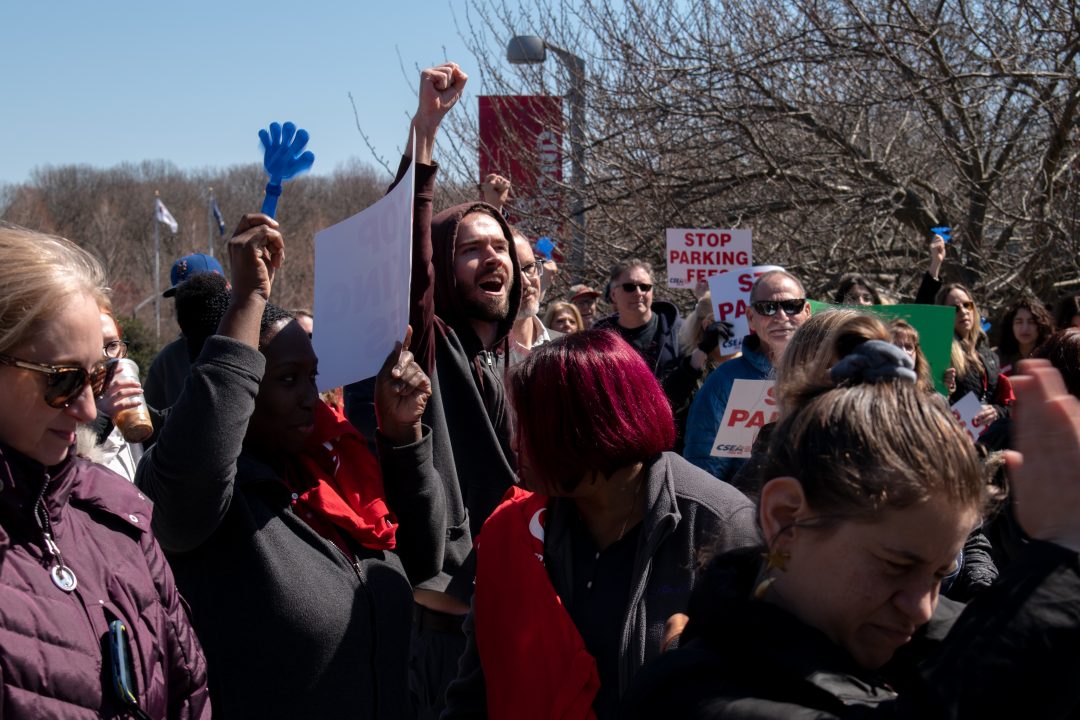
Ian Burney, a history professor at the University of Manchester, visited the Charles B. Wang Center at Stony Brook University on Feb. 6 to raise awareness about the Innocence Project and “put our present-day understanding of the forensic pursuit of innocence in historical perspective.”
The Innocence Project is an organization founded in 1992 that works to exonerate people who were wrongfully convicted using DNA testing.
The lecture, entitled: “Staging Innocence: Erle Stanley Gardner’s ‘Court of Last Resort’ and the Imaginative Landscapes of Frontier Justice in Post-War America,” was the first in the Spring 2020 Provost Lecture Series. Burney explained that “miscarriages of justice” lead to the conviction of many innocent men, many of whom never receive compensation for their wrongful convictions even after they’re exonerated.
“In recent years, the wrongful conviction has captured the attention of U.S. justice practitioners, as well as the public at large, since Gary Dotson became the first person to be cleared by post-conviction DNA testing in 1989,” Burney said. “The National Advocacy Organization spearheaded by the Innocence Project has championed the cause for potentially innocent prisoners, raised public awareness and promoted wide range policy reform,” is displayed on the Innocence Project’s official website.
Gary Dotson was sentenced to between 25 and 50 years in prison in 1979 after he was falsely convicted for rape. The conviction was overturned ten years later after DNA evidence proved that he was innocent. Dotson’s landmark case paved the way for dozens of sexual assault cases to be re-evaluated to determine the innocence of convicted offenders in the 1990’s onwards.
Some of these cases were highlighted in Burney’s detailed synopsis of Erle Stanley Gardner’s book, “Court of Last Resort”. Burney believes the introduction of DNA testing into court cases revolutionized the way America handles rape convictions in the 20th and 21st century.
Burney, who has studied the Midwest Innocence Project (MIP) for more than ten years, believes the aforementioned Gardener’s book was revolutionary in eliminating the phenomena known as “innocence fatigue.”
Burney pointed to how NYU attorney Bryan Stevenson, who rose to prominence during the early 2000’s, described innocence fatigue — “when media outlets are no longer interested in covering the justice system’s myriad flaws unless the story ends with the vindication of a long-suffering inmate,” Burney said.
When the floor opened for questions, Robert Chase, a history professor at Stony Brook University commented on how discrimination played a role in deciding the innocence of non-white men during pre-war America.
“There’s another Innocence Project moving forward on establishing both the innocence of the African American, but also the guilt of white men particularly in sexual assault,” Chase said.
Danielle Laroque, a graduate Ph.D. student in sociology from the University of Massachusetts Amherst, commented that the lecture helped her consider expanding her own research.
“As a second year student, I’m developing my topic, so it’s interesting to see how race, sexuality, and the carceral state all coincide even as I think about expanding on my own work,” she said.
















